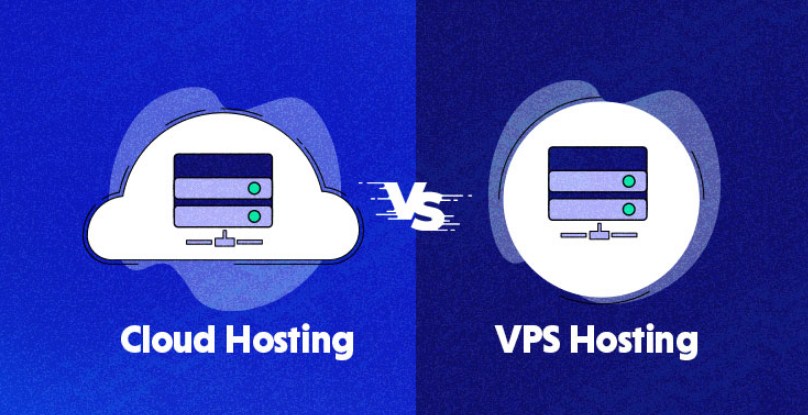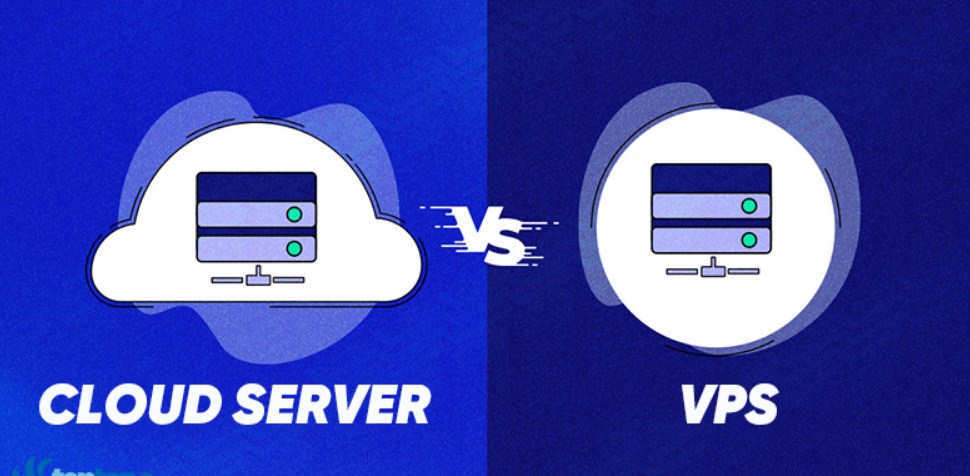OVH VPS vs Public Cloud – When considering cloud computing solutions, two of the most popular choices are OVH VPS and Public Cloud. Both offer scalability, flexibility, and performance, but which one is the best fit for your business or personal needs in 2025? In this article, we will dive deep into the comparison between OVH VPS and Public Cloud, explore their benefits, discuss real-world use cases, and guide you on which solution to choose based on your specific needs.

Introduction: What is OVH VPS and Public Cloud?
Before we dive into the comparison, let’s first understand what OVH VPS and Public Cloud solutions are.
- OVH VPS (Virtual Private Server) is a type of web hosting service provided by OVHcloud. It allows businesses and developers to have a private server environment within a virtualized setting. OVH VPS offers dedicated resources like CPU, RAM, and disk space, but it’s shared with other users on the same physical machine.
- Public Cloud refers to cloud computing services provided by third-party vendors like Amazon Web Services (AWS), Google Cloud, and Microsoft Azure. These services are delivered over the internet and provide on-demand computing resources such as virtual machines, databases, and storage.
Key Differences Between OVH VPS and Public Cloud
Let’s break down the main differences between OVH VPS and Public Cloud based on various factors:
| Feature | OVH VPS | Public Cloud |
|---|---|---|
| Resource Management | Dedicated virtual resources with full control | Shared resources with auto-scaling capabilities |
| Pricing | Affordable, fixed pricing model | Pay-as-you-go, often more flexible pricing |
| Performance | Reliable, but limited scalability | High scalability and on-demand resources |
| Customization | Greater control over server environment | Less customization due to managed services |
| Support | Direct customer support, sometimes limited | 24/7 support with extensive knowledge bases |
| Use Cases | Web hosting, game servers, and small apps | Large-scale enterprise applications, big data, and IoT |
Benefits of OVH VPS
OVH VPS has been a solid option for small to medium-sized businesses, startups, and developers who need a virtualized server but don’t require the complexity of a public cloud solution. Here’s why:
- Affordable Pricing
OVH VPS offers fixed, predictable pricing, which makes it easier for businesses to budget without any unexpected costs. The low cost compared to public cloud services can be ideal for those on a budget. - Dedicated Resources
Each VPS comes with dedicated CPU, RAM, and storage. Unlike shared hosting, you don’t have to worry about competing for resources with other users. - Customizability
With OVH VPS, you can fully customize your virtual server environment. Install any software, tweak settings, and optimize it for your business or application needs. - Scalability Options
Though OVH VPS does not scale automatically like public clouds, it offers the ability to upgrade or downgrade your server easily as your needs evolve.
Benefits of Public Cloud
Public Cloud solutions, such as AWS, Google Cloud, and Azure, offer flexibility and scalability that OVH VPS cannot match. Let’s take a look at the key advantages of Public Cloud:
- Unlimited Scalability
One of the major advantages of Public Cloud is its ability to scale resources up or down instantly based on demand. If your website or application experiences a traffic spike, Public Cloud services can auto-scale to accommodate that growth. - Global Data Centers
Public Cloud providers have a global network of data centers, meaning you can host your application in various regions worldwide for better performance and redundancy. - Enterprise-Level Tools
Public Cloud platforms offer advanced tools for managing databases, machine learning, big data analytics, and more. These tools are ideal for large enterprises or companies that need to innovate with cutting-edge technologies. - Security and Compliance
Leading public cloud providers adhere to strict security protocols and offer compliance with regulations such as GDPR, HIPAA, and SOC 2. This is especially beneficial for businesses operating in regulated industries. - Pay-As-You-Go Model
Public Cloud’s pay-per-use model is cost-effective for businesses that require flexible billing based on resource consumption.
Real-World Examples of OVH VPS and Public Cloud Products
Let’s take a closer look at real-world products that use OVH VPS and Public Cloud to solve business problems.

1. OVHcloud VPS
OVHcloud’s VPS solutions are perfect for developers and small businesses looking for a reliable and cost-effective hosting option. OVH offers different configurations of VPS depending on the needs of your project, from basic sites to resource-heavy applications.
- Use Case: A local eCommerce store using OVH VPS to host its website, ensuring full control over server configuration without overspending.
- Price: Starts at $3.49/month for basic configurations.
- Pros: Affordable, customizable, reliable.
- Cons: Limited scalability compared to Public Cloud.
2. Amazon Web Services (AWS)
AWS is a global leader in the Public Cloud market, offering vast scalability and a wide range of tools and services for businesses.
- Use Case: A large retail company using AWS to host its massive online store, leverage machine learning, and manage data analytics for better customer insights.
- Price: Pay-as-you-go model; pricing varies based on usage.
- Pros: Scalable, comprehensive tools, global presence.
- Cons: Can be expensive for small businesses.
3. Google Cloud
Google Cloud provides high-performance computing services that allow businesses to scale their applications without the worry of infrastructure management.
- Use Case: A tech startup using Google Cloud to deploy its SaaS product with high availability and global reach.
- Price: Offers a free tier, then pay-as-you-go for most services.
- Pros: Excellent for data-heavy applications, fast network speeds.
- Cons: Steeper learning curve.
4. Microsoft Azure
Azure provides a suite of cloud services including those for compute, analytics, storage, and networking. It’s a great choice for businesses that require enterprise-level solutions.
- Use Case: A financial institution using Azure’s security and compliance features to run its core banking services.
- Price: Pay-per-use, with a free trial for new customers.
- Pros: Enterprise-grade security, strong support for hybrid cloud.
- Cons: Complex pricing structure.
5. DigitalOcean VPS
DigitalOcean offers a simpler alternative to OVH VPS and Public Cloud providers. It’s a fantastic choice for developers looking to quickly deploy applications.
- Use Case: A startup building a mobile app and hosting the backend on a DigitalOcean VPS.
- Price: Starts at $5/month.
- Pros: Simple to use, affordable.
- Cons: Limited scalability compared to AWS or Google Cloud.
How to Choose Between OVH VPS and Public Cloud?
When choosing between OVH VPS and Public Cloud, consider your specific needs:
- Choose OVH VPS if you need an affordable and customizable hosting option with fixed costs and you’re comfortable managing the server yourself.
- Choose Public Cloud if you need scalable resources, advanced tools, and the ability to scale quickly for a growing application or enterprise-level project.
Where to Buy and How Much? 💰
- OVH VPS: You can purchase OVH VPS directly from the OVHcloud website. Prices start at $3.49/month.
- Public Cloud (AWS, Google Cloud, Azure): All of these platforms have flexible pricing models. Visit their respective websites for the latest offers:
- AWS Pricing
- Google Cloud Pricing
- Microsoft Azure Pricing
FAQs
- What is the main difference between OVH VPS and Public Cloud?
- OVH VPS provides fixed resources at a lower cost, while Public Cloud offers scalable resources with more advanced services and tools.
- Which is cheaper: OVH VPS or Public Cloud?
- OVH VPS is generally cheaper, with fixed pricing, but Public Cloud offers a pay-as-you-go model that can be more cost-effective for large-scale operations.
- Can I scale my OVH VPS as my business grows?
- Yes, but it’s not as seamless as Public Cloud. You can manually upgrade your VPS if needed.
- Which one should I choose for a startup?
- For small businesses or startups, OVH VPS might be the best choice due to its lower cost and predictable pricing. Public Cloud is more suitable for larger, more complex needs.
- Are there any free trials available?
- Yes, Public Cloud services like AWS, Google Cloud, and Azure offer free trials and free tiers to get started.
This concludes our comprehensive comparison of OVH VPS vs Public Cloud. Hopefully, this article has provided the insights you need to make an informed decision about your cloud computing needs. Happy hosting!
Read More >>>
- How to Start a Web Hosting Business from Home: A Step-by-Step Guide (2025)
- How to Start a Web Design Business from Home: Step-by-Step Guide